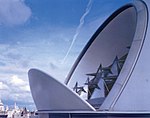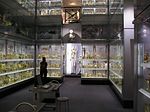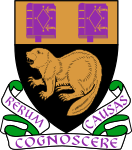The Department of Psychological and Behavioural Science is a department in the London School of Economics and Political Science, founded in 1964. Prior to 2009, it was located within the Department of Sociology. Work undertaken at the Department strives to understand, through theoretical development and empirical research, the social processes that emerge at the intersection between the individual and wider societal contexts. Research focuses on social representations, health, community, culture, racism, ethnicity, communications and the media, organisational psychology, the social construction of technology, gender, economic psychology, sexuality, social identity, risk and society, and innovation and creativity in organisations and business.
The Department of Psychological and Behavioural Science is a centre for the study of organisational and social psychology and has an international reputation for its research-led teaching in a variety of fields including the study of organizations, social representations, health and community, and the media. Its research atmosphere benefits from the legacy of Emeritus Professor Rob Farr and the late Professor Hilde Himmelweit, whose work established the LSE as a centre for the study of societal and sociological forms of social psychology. It has a strong international student component, with more than three-quarters of students coming from outside Britain.The Department of Psychological and Behavioural Science offers MSc courses in Health, Community and Development; Social and Organisational Psychology; Social and Cultural Psychology; and Social and Public Communication, as well as MPhil and PhD studies. The Department is also home to a number of Research Groups, such as the Science, Technology and the Public Sphere research group, the Health, Community and Development research group, The Organisational Studies Research Group, the Social Psychological Research into Racism and Multiculture group (SPRRaM) [1], and the LSE Social Representations Group.






